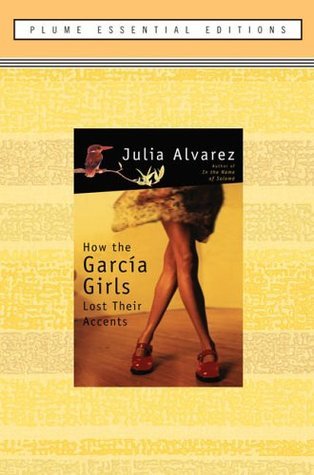How the García Girls Lost Their Accents Book Summary
TL;DR
'How the García Girls Lost Their Accents' explores the immigrant experience of four sisters as they navigate their identities and cultural dislocation after moving from the Dominican Republic to New York City.
What is How the García Girls Lost Their Accents about
In 'How the García Girls Lost Their Accents', Julia Alvarez intricately weaves together fifteen interconnected stories that chronicle the lives of the García sisters: Carla, Sandra, Yolanda, and Sofia. The narrative unfolds in reverse chronological order, starting with their adulthood in the United States and gradually revealing their childhood in the Dominican Republic. This structure emphasizes the profound impact of their uprooting and the cultural dissonance they face in America. Through their personal journeys, the sisters grapple with identity, family expectations, and the struggle to assimilate into a new culture while reconciling their past. The book poignantly showcases the complexities of immigrant life and the nuances of family dynamics against the backdrop of cultural loss.
How the García Girls Lost Their Accents 8 Key Takeaways
The García sisters' arrival in New York City.
The sisters are uprooted from their comfortable lives in the Dominican Republic and face the realities of immigrant life in New York City. This transition sets the stage for their struggles with identity and belonging.
The sisters' varying responses to cultural assimilation.
Each sister embodies a different approach to merging their Dominican heritage with their new American identity. Their experiences reveal the complexities of cultural integration and the pressures of family expectations.
Yolanda's challenges with language and identity.
Yolanda's journey highlights the struggles of navigating language barriers and cultural misunderstandings, illustrating the broader immigrant experience.
Sofia's rebellion and family conflict.
Sofia's defiance against her family's traditions leads to a significant rift, emphasizing the tension between the younger generation and traditional values.
The sisters' reflections on their past.
As the narrative progresses backwards, the sisters' recollections of their childhood reveal the deep emotional scars left by their displacement and the longing for their homeland.
The influence of family and cultural heritage.
The sisters' relationships with their parents and each other underscore the importance of family ties and the struggle to maintain cultural heritage amidst change.
The significance of storytelling in the sisters' lives.
Through their experiences, storytelling emerges as a vital means of coping with loss and creating a sense of identity.
The conclusion that embraces duality.
The book concludes with an understanding of the duality of identity, acknowledging both the sisters' American experiences and their Dominican roots.
Top How the García Girls Lost Their Accents Quotes
- "We are not only our pasts; we are also our dreams and our desires."
- "The hardest part of being American is not being able to be a Dominican anymore."
- "Language is a barrier and a bridge; it connects and divides us."
Who should read How the García Girls Lost Their Accents?
'How the García Girls Lost Their Accents' is ideal for readers interested in immigrant narratives, family dynamics, and cultural identity. Those who appreciate rich, character-driven stories will find inspiration and insight into the complexities of navigating dual identities and the experiences of uprooted lives.
How the García Girls Lost Their Accents Best Reviews
- "An exquisite portrayal of the immigrant experience, blending humor and heartbreak with lyrical prose." – The New York Times
- "Julia Alvarez's storytelling is rich and evocative, pulling readers into the lives of the García sisters with depth and sensitivity." – Los Angeles Times
- "This novel is a powerful exploration of identity, belonging, and the nuances of family dynamics within the immigrant experience." – BookPage
People also liked these summaries
How the García Girls Lost Their Accents FAQs
What is the significance of the title 'How the García Girls Lost Their Accents'?
The title reflects the sisters' journey of cultural assimilation and the personal losses they endure as they navigate their identities in a new country.
Is 'How the García Girls Lost Their Accents' based on a true story?
While the novel is fiction, it draws heavily from Julia Alvarez's own experiences as an immigrant and the complexities of cultural identity, making it resonate with many readers.
What themes are explored in 'How the García Girls Lost Their Accents'?
The book delves into themes of identity, family dynamics, cultural dislocation, and the immigrant experience, highlighting the struggles and resilience of the García sisters.
